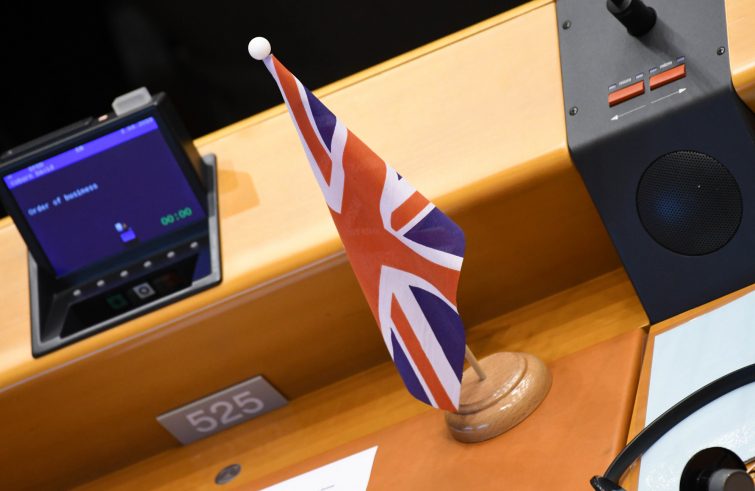
Will Great Britain be subject to the whim of the United States that will exploit it by imposing legislation bound to lower the quality of goods and worsen worker conditions, or it will be a UK with close ties to the EU thanks to a post-Brexit deal in accordance with European legislation? In the elegant venue of the Foreign Office, a few steps from Downing Street and Westminster Parliament, Britain’s separation from the EU remains a popular topic for two hundred foreign correspondents gathered at the “Working with Whitehall” event, organised by the Foreign Office in conjunction with the Foreign Press Association.
Representatives and press officers from all British ministries attended.
Christopher Pincher, Conservative Minister awaiting to know what will be his fate in the current cabinet reshuffle, delivered the opening remarks. He pointed out that the ties between the UK, which has always been deeply pro-European, and the EU, remain strong.
While press officers are keen to leave the Brexit divisions behind and categorically rule out the possibility of exiting from the EU without an agreement, for Antonello Guerrera, correspondent for Italian daily “La Repubblica”, the fear of a “no-deal” still lingers in Whitehall’s halls.
“Although Boris Johnson now calls it ‘Australian deal’, with a silver lining,” Guerrera said, “we cannot rule out the absence of a negotiated trade deal with the EU at the end of the year. He added: “The negotiations of the upcoming ten and a half months, till the end of next December, although tedious, will be extremely important. They will define the economic and geopolitical structure of Europe, the United States and the entire Western world”.
According to the correspondent of “La Repubblica”: “It will be very difficult for Boris Johnson to square the circle, i.e. pleasing both the EU and Donald Trump’s America.”
“EU regulations differ greatly from American ones,” Guerrera explained, “and if Johnson decided to leave the EU to favour an agreement with the United States, Trump could boldly demand foreign policy aid in Iran or Libya in return, which Johnson would find it hard to concede.”
In the case of a “no deal” or “Australian deal”, Scottish separation would most likely occur, as this area of the United Kingdom is economically dependent on the single market and on open borders to migrants.
“The coming months we will see a long, lingering clash between England and Scotland.”
Guerrera remarked. “The Scottish people have no intention of ending up like the Catalans, nor do they want to be dragged out of the EU against their will”. According to Guerrera, most of the British productive and economic sectors favour a firm alignment of the United Kingdom with EU rules, while Boris Johnson utterly rejects this possibility.
Deborah Bonetti, director of the Foreign Press Association in London and correspondent for the daily newspaper “Il Giorno”, is also convinced that  “things are moving towards a harder Brexit than most people had imagined”. “I wouldn’t have expected it, but right now, it seems that there the UK will not align with European rules, the so-called level playing field.” The FPA director added: “I hope that this year’s intense negotiations will rule out that scenario, leaving room for an agreement with the EU.
“things are moving towards a harder Brexit than most people had imagined”. “I wouldn’t have expected it, but right now, it seems that there the UK will not align with European rules, the so-called level playing field.” The FPA director added: “I hope that this year’s intense negotiations will rule out that scenario, leaving room for an agreement with the EU.
For Kate Mc Cure, Australian freelancer and president of the FPA, “in Britain everybody is relieved because uncertainties were dispelled by Boris Johnson’s strong majority vote.”
“It is unlikely that the UK will become a satellite country of the US because it is an important economy, ranked fifth in the world”, said Kate Mc Cure, “I also believe that the EU needs British products as much as the UK needs European products and that a deal is mutually beneficial. As an Australian I can say that  free trade with the rest of the world runs smoothly, yet it’ s very difficult and complex to implement. Moreover, for Great Britain it’s an uncharted territory, because so far, trade negotiations have been conducted by the EU.”
free trade with the rest of the world runs smoothly, yet it’ s very difficult and complex to implement. Moreover, for Great Britain it’s an uncharted territory, because so far, trade negotiations have been conducted by the EU.”
The three correspondents agree that “it’ s too early to know what will happen next”,adding that, “with the recent decision to allow Chinese tech Giant Huawei to help build Britain’s 5G Network, Boris Johnson has shown that he will be pursuing his own interests and not Trump’s.”











